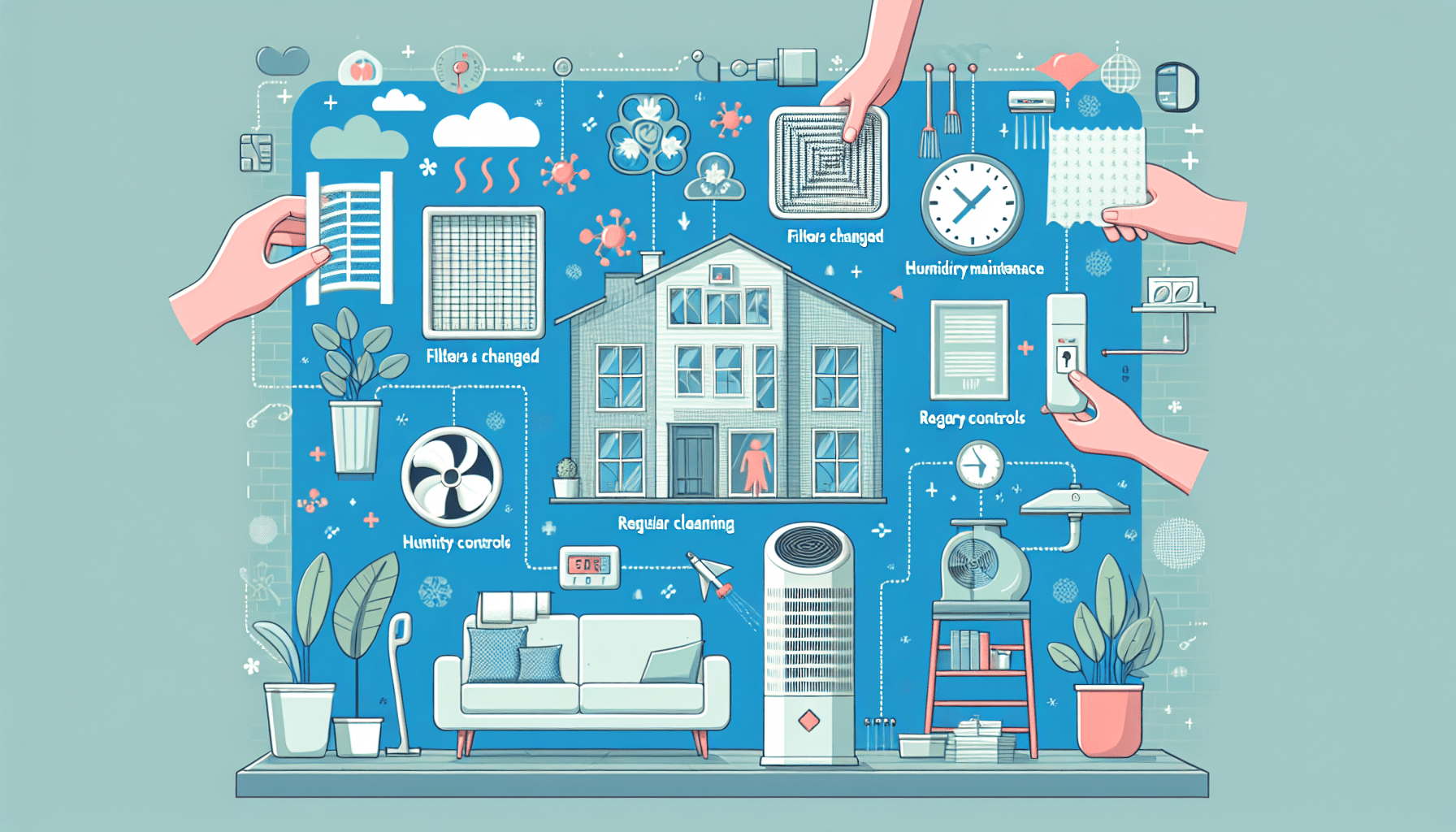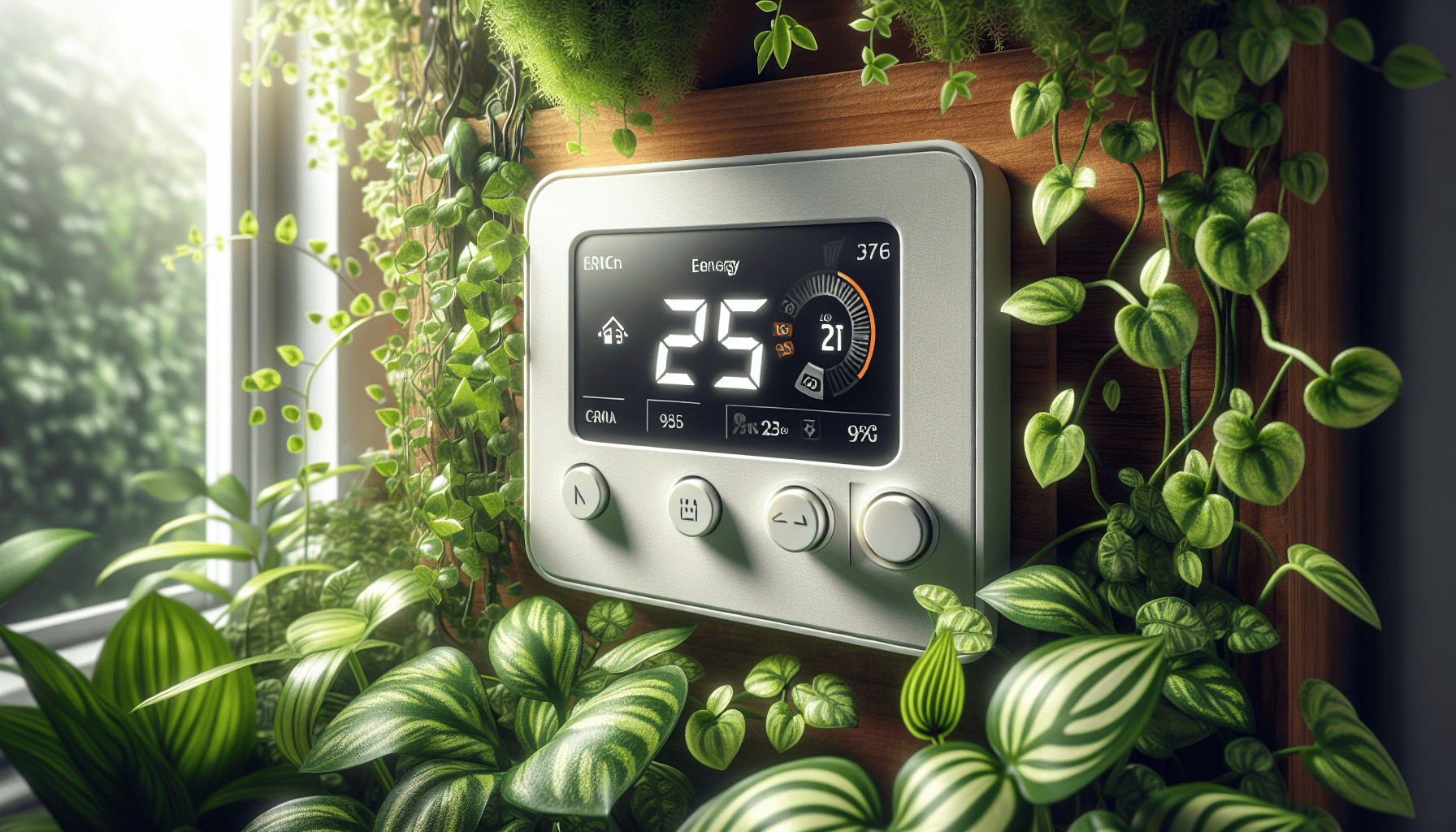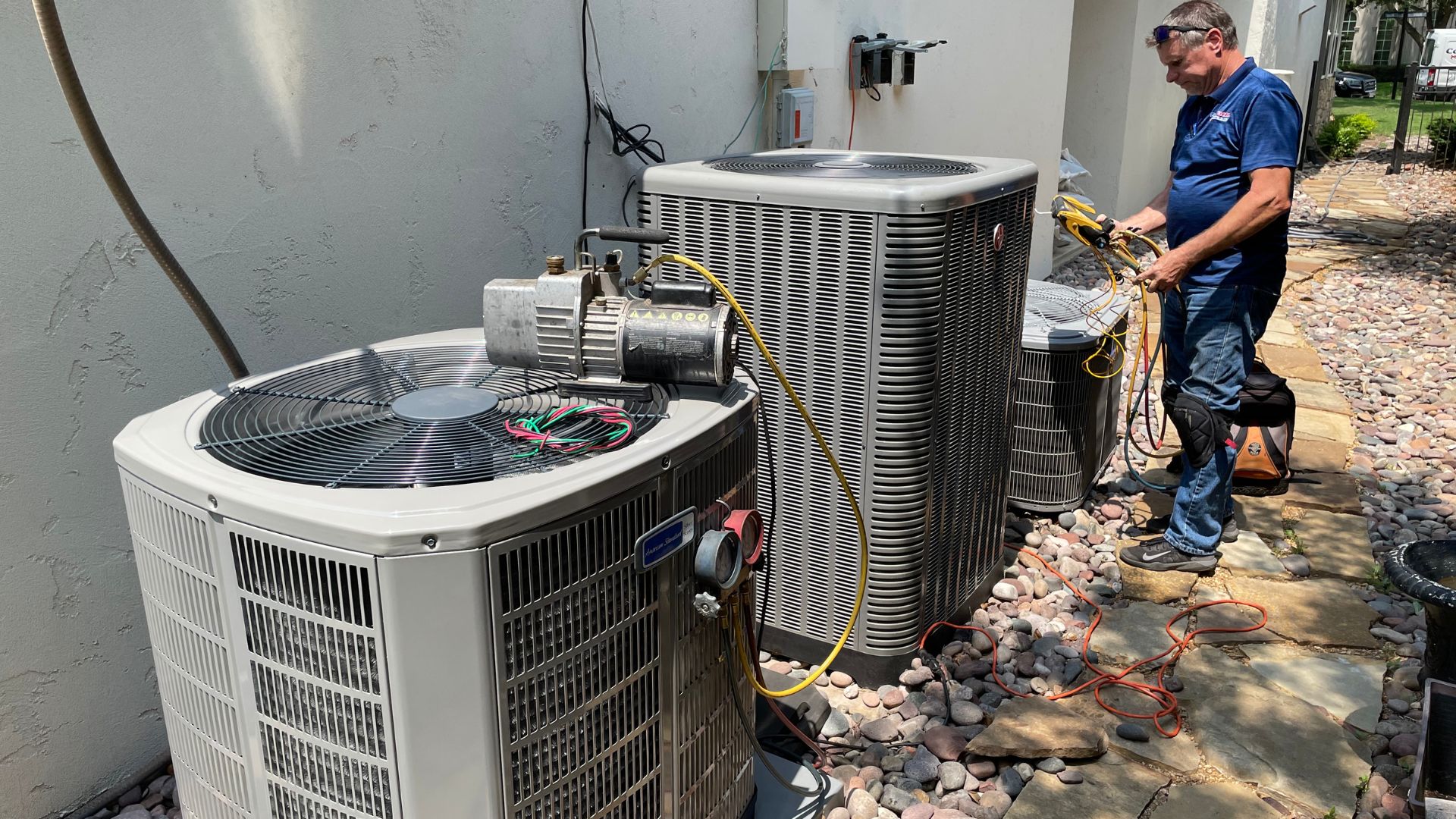Are you one of the many people who suffer from allergies? If so, you know how frustrating it can be to constantly battle with sneezing, watery eyes, and congestion. While you may not be able to control the allergens outside, you can take steps to improve the air quality inside your home. In this article, we will discuss the best air conditioning tips for allergy sufferers, so you can breathe easier and enjoy a more comfortable environment.

Understanding Allergies and Indoor Air Quality
Allergies are a common condition that affects millions of people worldwide. They occur when the immune system overreacts to certain substances, known as allergens, causing a variety of symptoms such as sneezing, coughing, itching, and congestion. Allergens can be found both outdoors and indoors, but indoor allergens can be particularly troublesome for allergy sufferers.
Indoor Air Quality (IAQ) refers to the quality of the air inside a building, including homes, offices, and other indoor spaces. Poor IAQ can have a significant impact on health, especially for those with allergies. Indoor air can be filled with allergens such as dust mites, pollen, pet dander, mold spores, and even certain chemicals and pollutants.
Air Conditioning System and Allergies
Understanding how an air conditioning (AC) system works is crucial to comprehend its impact on indoor air quality and allergies. AC systems help regulate the temperature, humidity, and ventilation of indoor spaces. They work by drawing in warm indoor air, cooling it down through refrigeration, and then returning the cooled air back into the room.
However, AC systems can have both positive and negative effects on allergies. On one hand, they can help reduce certain allergens by filtering and circulating the air, which can provide relief for allergy sufferers. On the other hand, if not properly maintained, AC systems can worsen indoor air quality and exacerbate allergy symptoms.
Beneficial Features of an Air-Conditioner for Allergy Sufferers
For allergy sufferers, it’s important to choose an air conditioner with features that can help improve indoor air quality and alleviate symptoms. Here are some beneficial features to consider:
HEPA Filters
High-Efficiency Particulate Air (HEPA) filters are designed to trap tiny particles, including allergens, like dust mites, pollen, and pet dander. These filters are highly effective in removing airborne allergens, providing cleaner air and reducing allergy symptoms.
Dehumidifiers
Excess humidity can contribute to the growth of mold and dust mites, which are common allergens. Dehumidifiers help to reduce humidity levels, creating an environment that is inhospitable to these allergens. By controlling moisture, dehumidifiers can improve indoor air quality and reduce the risk of allergies.
UV Germicidal Lights
UV Germicidal Lights utilize ultraviolet radiation to destroy bacteria, mold, and viruses. By incorporating these lights into an air conditioner, airborne allergens can be effectively eliminated, further improving indoor air quality for allergy sufferers.
Ionizers
Ionizers work by releasing negatively charged ions into the air. These ions attach to allergens and particles, causing them to stick together and fall to the ground or get caught in the air filter. The use of ionizers can help reduce the concentration of allergens in the air, providing relief for allergy sufferers.
Regular Maintenance of Air Conditioning System
Regular maintenance of an air conditioning system is essential to ensure optimal performance, energy efficiency, and improved indoor air quality. It can also help reduce allergy symptoms by minimizing the presence of allergens in the air. Here’s why regular maintenance is important:
Importance of regular maintenance
Regular maintenance keeps the AC system clean and prevents the accumulation of dust, dirt, and other allergens. It also helps identify and address any issues that may affect the system’s performance and indoor air quality.
Key elements included in regular maintenance
Regular maintenance includes tasks such as cleaning or replacing filters, checking and cleaning coils, inspecting electrical connections, lubricating moving parts, and verifying proper refrigerant levels. These tasks can significantly enhance the performance of the AC system and reduce allergens in the indoor environment.
Impact of regular maintenance on allergies
Regular maintenance can greatly reduce the presence of allergens in the air. By cleaning or replacing filters, allergens such as dust mites, pollen, and pet dander can be effectively captured and prevented from circulating in the indoor space, leading to improved air quality and reduced allergy symptoms.

Importance of Clean Filters in Reducing Allergies
Air filters play a crucial role in an air conditioning system, especially when it comes to reducing allergies. Here’s why clean filters are essential for allergy sufferers:
Role of air filters in an AC system
Air filters in an AC system are responsible for capturing airborne particles, including allergens, and preventing them from entering the indoor space. They help improve indoor air quality by trapping dust, pollen, mold spores, and other allergens.
Impact of dirty filters on allergies
When air filters are dirty or clogged, they become less efficient at capturing allergens. This can result in higher levels of allergens circulating in the indoor air, exacerbating allergy symptoms. Additionally, dirty filters may impede the airflow of the AC system, reducing its overall performance.
Advantages of clean filters in reducing allergies
By regularly cleaning or replacing air filters, allergy sufferers can enjoy cleaner indoor air with reduced allergen levels. Clean filters ensure greater efficiency in capturing allergens, providing relief from allergy symptoms and improving overall indoor air quality.
Instructions on how to clean and replace filters
To clean air filters, gently remove them from the AC system and rinse them with water. Allow them to dry completely before reinstalling. Filters should be cleaned at least once a month or as specified by the manufacturer.
Replace filters when they are visibly dirty or damaged. Follow the manufacturer’s instructions for proper replacement, ensuring the new filters are compatible with the AC system.
Ideal Temperature and Humidity Settings for Allergy Sufferers
Maintaining appropriate temperature and humidity levels indoors can significantly impact allergy symptoms. Here’s what allergy sufferers should aim for:
Ideal indoor temperature and humidity levels for allergy sufferers
For allergy sufferers, it is generally recommended to maintain indoor temperatures between 68°F and 72°F (20°C to 22°C). Additionally, humidity levels should be kept between 30% and 50% to discourage the growth of mold and dust mites.
How to maintain these levels using AC system
An AC system with a built-in thermostat can help maintain the desired temperature. By setting the thermostat within the recommended range, allergy sufferers can create a comfortable indoor environment that reduces the risk of triggering allergy symptoms.
To control humidity, an AC system with a dehumidifying feature can be utilized. This allows the system to remove excess moisture from the air, ensuring optimal humidity levels and minimizing the presence of allergens.
Impact of these settings on allergies
By maintaining the ideal temperature and humidity levels, allergy sufferers can create an environment that is less conducive to allergen growth and survival. This can lead to a significant reduction in allergy symptoms and improved overall well-being.
Minimizing Allergens through Proper Ventilation
Proper ventilation plays a vital role in improving indoor air quality and reducing allergens. Here’s why ventilation is important for allergy sufferers:
Understanding the importance of ventilation
Ventilation helps to circulate fresh air and remove stale air, along with any airborne contaminants, including allergens. It helps dilute and remove indoor pollutants, improving the overall quality of the indoor air.
How to achieve proper ventilation with AC system
An AC system can assist in achieving proper ventilation by utilizing features such as air exchange, which introduces fresh air from the outside. Additionally, opening windows and using exhaust fans in areas prone to high moisture levels, such as bathrooms and kitchens, can enhance ventilation.
By ensuring proper ventilation, allergy sufferers can minimize the concentration of allergens in the air and promote a healthier indoor environment.
Role of ventilation in reducing allergens
Proper ventilation helps to control humidity levels, filter allergens, and remove pollutants from the indoor environment. By reducing the concentration of allergens in the air, ventilation can effectively alleviate allergy symptoms and improve overall air quality.
Use of Air Purifiers in addition to Air Conditioning System
Air purifiers can be a valuable addition to an air conditioning system for allergy sufferers. Here’s why:
Defining air purifiers and how they work
Air purifiers are appliances designed to remove pollutants and allergens from the air. They work by drawing in air, filtering it through various technologies (such as HEPA filters or activated carbon filters), and then releasing the purified air back into the room.
Benefits of a combination of purifiers and AC system for allergy sufferers
Combining air purifiers with an AC system can provide enhanced air cleaning and allergen removal. Air purifiers can target specific airborne allergens that may not be effectively captured by the AC system’s filters alone, providing additional relief for allergy sufferers.
Best air purifiers for allergy sufferers
When selecting an air purifier, look for models with HEPA filters, as they are highly effective at capturing allergens. Additionally, consider air purifiers with activated carbon filters, which can help eliminate odors and chemicals from the indoor air. Look for purifiers that are suitable for the size of the room or space where they will be used.
Investing in Smart Air Conditioners for Better Allergy Management
Smart air conditioners are an innovative option for allergy sufferers, offering improved control and convenience. Here’s why investing in smart ACs can benefit allergy management:
Understanding how smart ACs work
Smart ACs can be controlled remotely through a smartphone app or home automation systems. They allow for easy adjustment of temperature, humidity levels, and air circulation. Some models even provide real-time air quality monitoring and allergen level alerts.
Benefits of smart ACs in managing allergies
Smart ACs enable allergy sufferers to have precise control over their indoor environment. By easily adjusting settings to maintain ideal temperature, humidity, and ventilation levels, allergy symptoms can be minimized. Real-time air quality monitoring alerts users to any changes in allergen levels, allowing for prompt action.
Best smart ACs for allergy sufferers
When considering a smart AC, look for models with features tailored to allergy management, such as the ability to adjust humidity levels or integrate with air quality sensors. Research different models to find the best fit for your specific needs and budget.
Recommendations for Other Allergen-Reducing Methods
In addition to utilizing air conditioning systems and purifiers, here are some other recommendations to reduce allergens in your indoor environment:
Keeping the house clean
Regular cleaning, including dusting, vacuuming, and mopping, can significantly reduce the presence of allergens. Pay special attention to bedding, upholstery, and other areas where allergens tend to accumulate.
Limiting outdoor air during high pollen counts
When outdoor pollen counts are high, limit the amount of outdoor air entering your home. Keep doors and windows closed and utilize the AC system for ventilation instead.
Appropriate use of medications and allergen immunotherapy
Consult with a healthcare professional to develop a management plan that may include medications or allergen immunotherapy. These treatments can help alleviate allergy symptoms and reduce the body’s sensitivity to allergens.
By implementing these recommendations, allergy sufferers can create a cleaner and healthier indoor environment, minimizing exposure to allergens and improving overall well-being. With the right combination of air conditioning systems, regular maintenance, and other allergen-reducing methods, allergy sufferers can enjoy a more comfortable and symptom-free living space.




